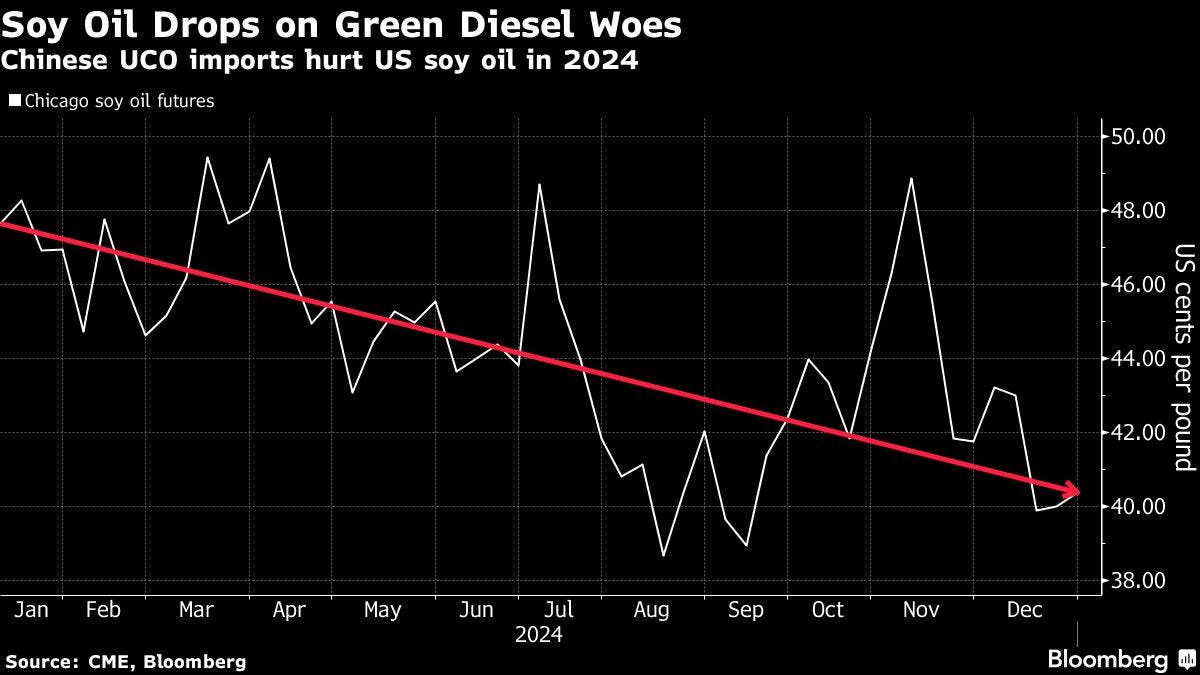By Kim Chipman
LanzaJet Inc. has ambitions to become the first ever commercial maker of green jet fuel made from ethanol. But now, U.S. tariffs on Brazilian biofuel are creating a problem.
While its plant in Georgia sits about 1,000 miles from the biggest U.S. corn and ethanol hub in Iowa, it is positioning to take in shipments instead from South America. It’s not that LanzaJet doesn’t want to use domestic farm products for its fuel. Rather, those commodities aren’t deemed climate-friendly enough under U.S. federal guidelines to qualify for a tax credit, known as 45Z, aimed at boosting production of low-carbon fuels — including sustainable aviation fuel, or SAF.
“If this tariff holds true on ethanol imports, the result is a higher cost SAF product that we are making in the U.S.,” LanzaJet Chief Executive Officer Jimmy Samartzis said in an interview, referring to a new levy on Brazilian products. “There is no alternative for a U.S.-produced ethanol that qualifies.”
While the green jet fuel industry is in its infancy, the potential setback from tariffs could have a chilling effect on U.S. investment at a time when China and Brazil are looking to ramp up their own domestic SAF markets.
LanzaJet’s dilemma underscores the ripple effects President Donald Trump’s levies are having on the US biofuels market and the agriculture sector that supports it. The impacts are being felt in terms of imports of supplies that feed plants, and there are also concerns over what retaliatory measures from trading partners will mean for exports. Meanwhile, the trade fights are hitting at a time when the industry was already contending with uncertain policy out of Washington, especially as the Trump administration has taken aim at climate change policies that had given a boost to renewable fuels.
“Put your seat belt on and your other seat belt on, and maybe get a third seat belt, and just hang on, because it’s going to be volatile,” said Jim Schultz, the founder of private equity fund management firm Open Prairie and a fifth generation agriculture investor who grew up on his family’s farm in Illinois. He spoke in an interview last week from Bloomberg Intelligence’s Farm, Food & Fuel Summit in Indianapolis.
Green Diesel
One particular area of concern is U.S. green diesel.
Some producers of the biofuel have been depending on feedstocks of used cooking oil, or UCO, from China. Now, that trade could also come with higher expenses.
The U.S. imported 2.8 billion pounds of used cooking oil from China in calendar year 2024, up from 1.5 billion the previous year, according to No Bull Ag analyst Susan Stroud, who cited government data. Shipments from the Asian country made up roughly half of what the U.S. purchased from abroad last year.
UCO is highly valued for making renewable diesel and other biofuels due to its low carbon intensity score. Last year’s import flood, though, spurred concern that some shipments may be fraudulent, leading the Biden administration to ban the foreign feedstock from qualifying under 45Z.
Even then, imports are continuing to arrive in the U.S. as the market waits for the Trump administration to weigh in on unfinished tax credit rules.
“UCO is facing a double whammy,” said James Primrose, an independent biofuel consultant.

Shrinking imports of waste oils and fats could be potentially good news for U.S. farmers and processors of soybeans. Fresh soy oil, made by crushing whole beans, is also used as a biofuel feedstock. In the past, it’s faced stiff competition from UCO, which is seen as having a smaller carbon footprint and can therefore be more valuable under federal policy as well as in low-carbon markets like California. Soy oil futures in Chicago slumped 16% last year.
The impact from tariffs could lend more support to soy oil over foreign UCO this year. That would help US farmers, who are growing concerned that their shipments of soybeans to China will see shrinking demand amid the trade spat.
As the tariff upheaval triggers concerns, some market watchers hope the moment creates a push to get US biofuel policy better aligned with domestic agriculture overall.
“An integrated supply chain for US biofuel, sustainable aviation fuel and renewable diesel — that’s an interesting story,” Ken Zuckerberg, director of research at CHS Inc., the largest U.S. farm cooperative, said at the Bloomberg Intelligence forum last week. “It’s a remaking of the ag order.”
© 2025 Bloomberg L.P.